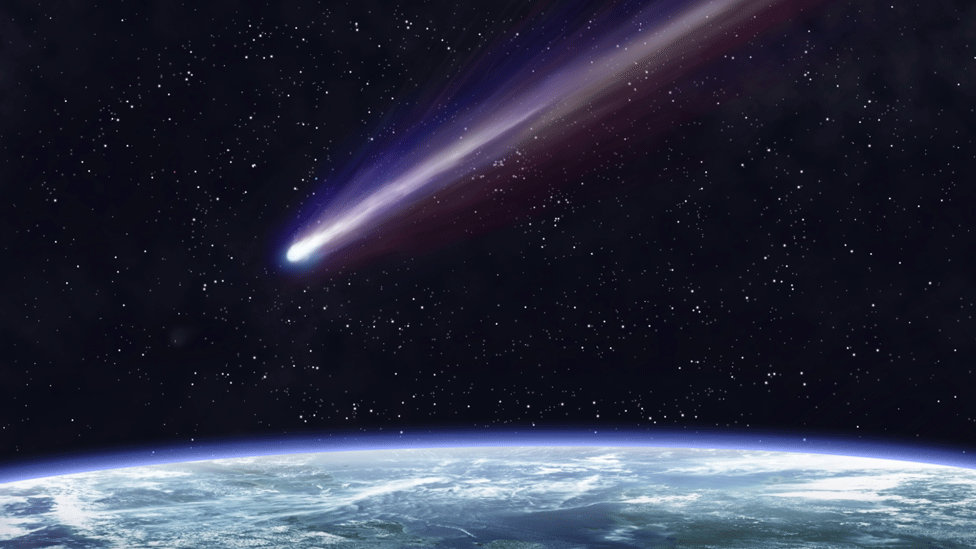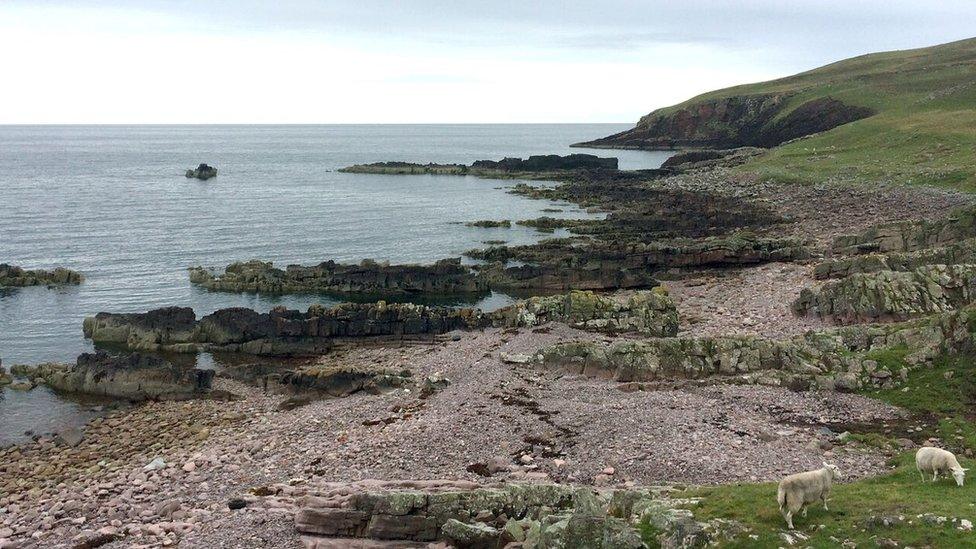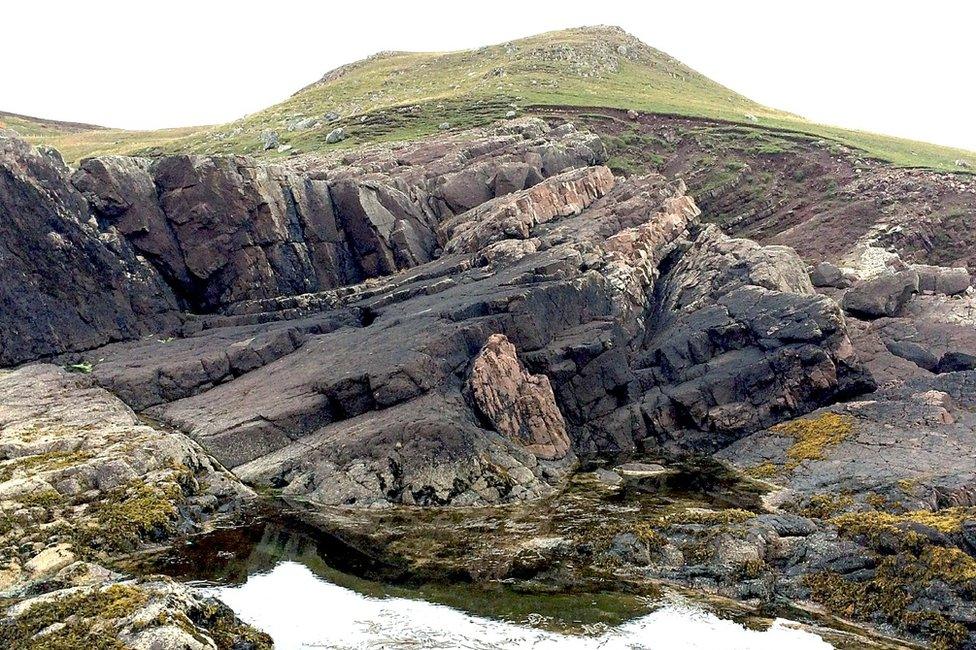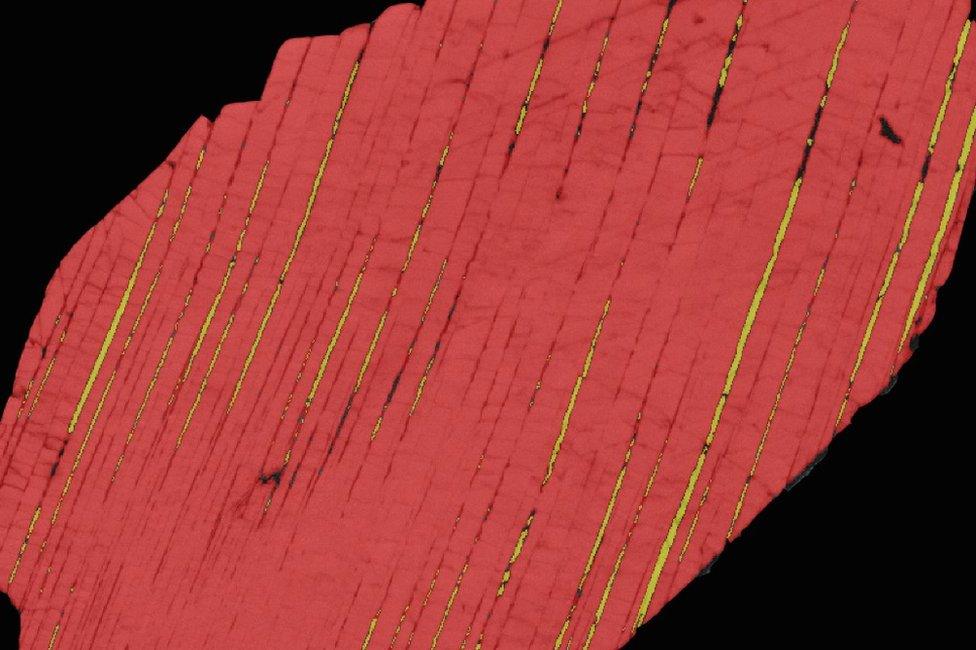1.2 billion-year-old 'meteorite mineral' found in Scotland
- Published

Reidite is only known to form in nature during meteorite impact events
The earliest known occurrence of one of Earth's rarest minerals has been found in Scotland, scientists have said.
The 1.2 billion-year-old reidite was found in rock samples taken from the Stac Fada Member, a large geological area in the north west Highlands.
Reidite is only known to form in nature during meteorite impact events.
The discovery reinforces a theory that Stac Fada's geology was formed by material thrown out by a meteorite impact 1.2 billion years ago.
What's happening in Scotland? Keep in touch through our live page.

Sheep grazing near rocks of the Stac Fada Member in the north west Highlands

The site where samples were taken for analysis
A team of Curtin University geoscientists working with the University of St Andrews made the find.
They said the reidite found in a stone called zircon was more than double the age of the previous oldest known occurrence at 450 million years.
It was found in samples taken from a layer of rock previously thought to have been created by volcanic activity but more recently linked to an ancient meteorite impact.

A false colour image of a sample of zircon with reidite shown in yellow
The geology extends to about 31 miles (50km) from Stoer, north of Lochinver, to Poolewe.
A crater from the meteorite impact has still to be found, though it may already have disappeared because of other geological processes.
Pete Harrison, of the North West Highlands Geopark, described the new discovery as a "final piece" of evidence it was a meteorite.
He said: "This looks like proof that the Stac Fada Member was caused by a meteorite impact 1.2 billion years ago.
"It is amazing that this mineral has survived so long as it was formed at high pressure during the impact."
The North West Highlands Geopark was established in 2004 and has just had confirmation that it will have its Unesco-recognised geopark designation revalidated for another four years.